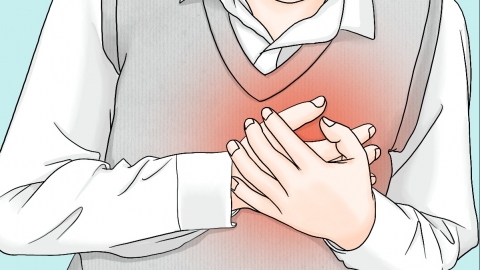What should be done about a slow heart rate with premature heartbeats?
Generally speaking, cardiac premature beats refer to premature contractions. Bradycardia associated with premature contractions may be caused by strenuous exercise, cold environments, sinus bradycardia, hypothyroidism, myocarditis, or other factors. It is recommended to seek timely medical consultation and receive treatments such as general care or medication under the guidance of a physician. Detailed explanations are as follows:

1. Strenuous Exercise
After intense physical activity, if the body suddenly stops moving, venous return decreases and cardiac load changes, which can reflexively stimulate the vagus nerve, causing bradycardia. At the same time, myocardial cells may exhibit premature contractions due to the stress state following exercise. It is advisable to avoid abrupt cessation of activity after exercising and instead perform appropriate cool-down activities such as walking slowly or stretching.
2. Cold Environment
In cold environments, the body reduces heat loss by constricting peripheral blood vessels, which increases blood pressure and reflexively slows heart rate. Additionally, the excitability of myocardial cells may change in the cold, triggering premature contractions. It is important to adjust clothing according to environmental temperature and avoid prolonged exposure to cold conditions.
3. Sinus Bradycardia
Sinus bradycardia is often caused by dysfunction of the sinoatrial node. When the sinoatrial node generates impulses at a slower frequency, the heart rate decreases. The electrical activity of the myocardium becomes unstable, potentially leading to premature contractions. Symptoms such as dizziness and fatigue may also occur. Treatment options under medical supervision may include medications such as atropine sulfate tablets, isoproterenol hydrochloride injection, or salbutamol sulfate injection.
4. Hypothyroidism
Hypothyroidism may be related to autoimmune damage, thyroid destruction, excess or deficient iodine intake. It causes a decrease in metabolic rate, weakened myocardial contraction, and slower heart rate. Abnormal metabolism and electrical activity of myocardial cells can lead to premature contractions. Symptoms such as cold intolerance and fatigue may also be present. Patients may follow medical advice to use medications such as methimazole tablets, levothyroxine sodium tablets, or propranolol hydrochloride tablets.
5. Myocarditis
Myocarditis is often caused by viral or bacterial infections affecting the myocardium, leading to damaged myocardial cells and impairments in the heart's conduction system and pacemaker function. This can result in bradycardia and premature contractions. Symptoms such as fever and chest pain may also occur. Patients may follow medical recommendations to use medications such as ribavirin tablets, acyclovir tablets, or metoprolol tartrate sustained-release tablets.
In daily life, maintaining a positive mindset and avoiding significant emotional fluctuations is important to prevent disturbances in cardiac electrical activity. Regular medical checkups are also recommended for early detection of hidden heart diseases or other health issues, allowing for timely intervention and treatment.




